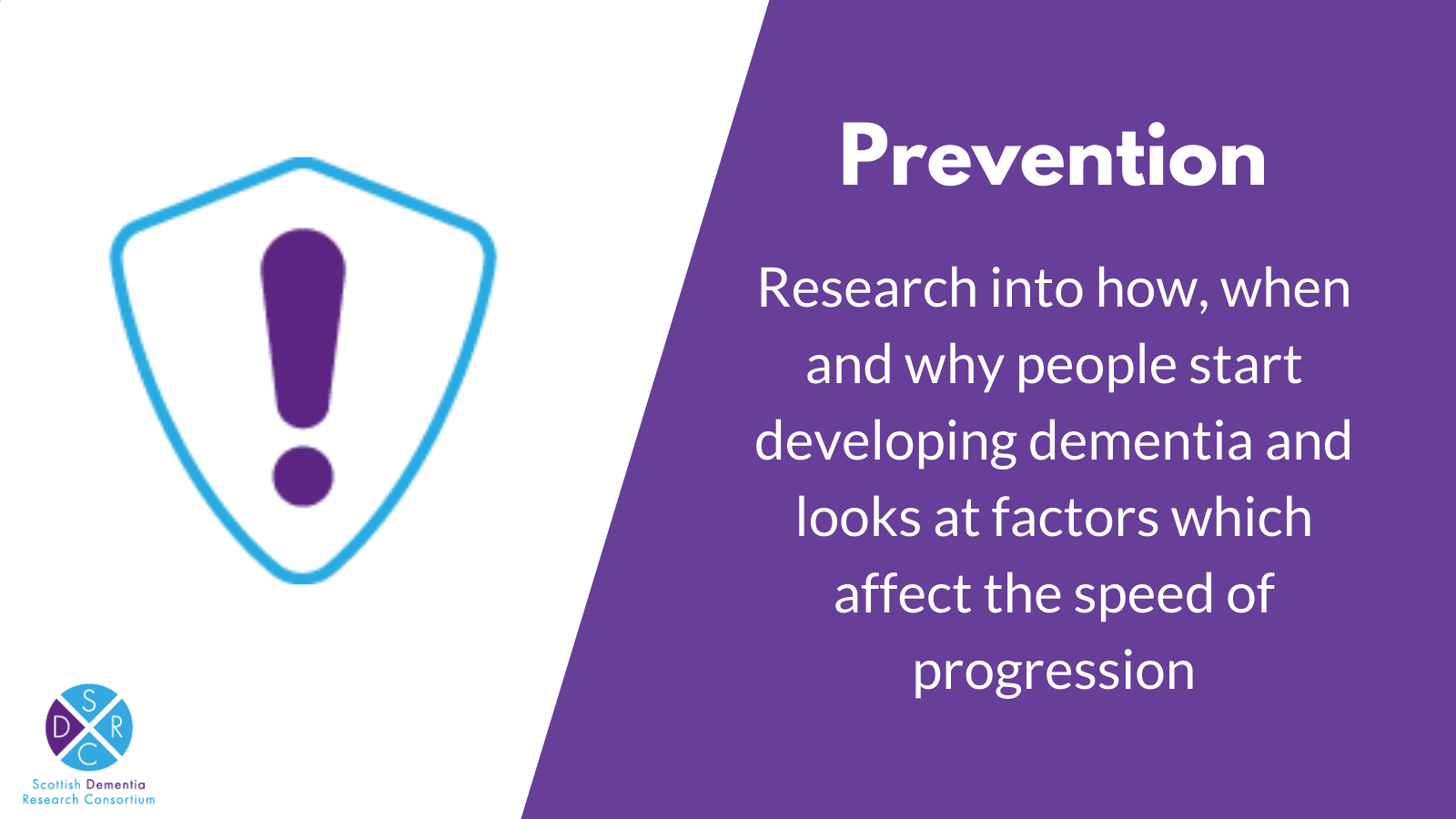Dementia Prevention, is one of the themes of the SDRC and featured in the SDRC Annual Report 2022/23. Theme lead, Dr Stina Saunders, has written the following extract from the report dedicated to the research across Scotland on dementia prevention and brain health. Read this below.
It has been great year in the prevention theme of SDRC with lots of on-going projects and set-up of new initiatives bringing attention to the possibility and aspiration of preventing dementia. Here are some of the highlights of this year’s activities.
Over the past year the PREVENT dementia programme (Principal Investigator Prof Craig Ritchie) led by the University of Edinburgh has been completing follow-up assessments with participants whilst also recruiting new participants who are ex-professional rugby and football players. To date 48 rugby players and 25 footballers have been recruited, and the recruitment of rugby players will be complete by June 2023 when the data will be prepared for analysis. The PREVENT dementia programme has also had a number of publications released this year on the baseline dataset of the longitudinal study, a full list of PREVENT publications can be found on the PREVENT website: https://preventdementia.co.uk/publications/.
Furthermore, over the past year, Early Career Researchers from the PREVENT dementia programme and the Global Brain Health Institute established the Next Generation (NextGen) study, focusing on brain health in young adulthood (18-39 years). The group of researchers recognised that young adults are neglected in brain health research despite exposure to many lifestyle-related risk factors beginning during this stage of life. By bridging evidence gaps in young adults, we hope to characterise patterns of risk exposure across the life course, and ultimately, identify critical windows for intervention. Ongoing research includes focus groups to explore young peoples’ awareness, understanding and attitudes towards brain health. Findings will inform an international survey targeting young adults, which will be launched in 2023. Associated paper at BMJ: https://www.bmj.com/content/378/bmj.o2311
Additionally, a sister project to the PREVENT study was launched. The Ghana PREVENT Study seeks to develop a cohort of people to facilitate the study of risk factors of dementia in the Ghanaian population. The study is modelled around the PREVENT programme with the following objectives:
- Build a database of deep digital phenotype of a representative sample of middle-age individuals across the Ghana.
- Carry out baseline comparative analysis between the Ghana PREVENT and the UK PREVENT Programme cohorts to document the differences between developed and developing countries as represented by the two cohorts.
- Develop early detection and risk prediction models using Artificial Intelligence approaches.
- Contribute to global cohorts to explore differences and generate evidence to support policy formulation locally.
The past year has focused on development of partnerships with local academics and practitioners to co-design and implement the study. A full protocol has now been developed and ready for ethics approval. Data collection is anticipated to begin 1st May 2023. The picture below shows a project planning session with the management team and local partners, chaired by the Principal Investigator Dr Sammy Danso. The project will be funded by the Davos Alzheimer’s Collaborative.
Finally, Brain Health Scotland launched the My Amazing Brain school programme which is aimed for 8-12 year-olds (P5-P7) and designed to help children explore all about how to keep their brain healthy. The programme includes animations, activities and worksheets to fit in with any schedule from a 15 minute taster session, 30 mins, 90 mins to 6 x 1 hr lessons. The lessons are research based and informed by the Curriculum of Excellence as well as being fun, engaging and accessible. They are available in English and Gaelic and can be used in a school setting or outside the classroom e.g. Brownies, Scouts or football camps.
Brain Health Scotland are delighted that around 200 schools and nearly 10,000 children have used the My Amazing Brain free resources. Brain Health Scotland are also working with partners such as The Boys Brigade and the Scottish Football Association on themed My Amazing Brain programmes. The goal is to inspire and empower young people to learn about the things they can do to keep their brains healthy so they can set up good habits early in life. You’re never too young to look after your brain, your brain is amazing, let’s keep it that way!

